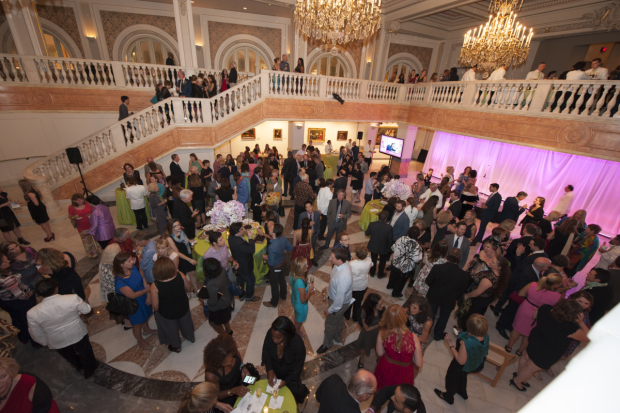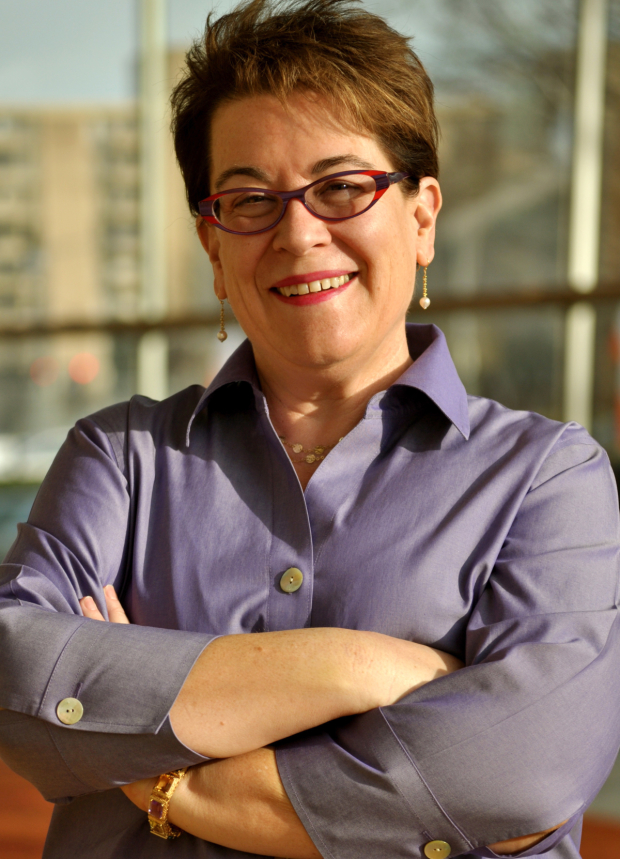How the Women's Voices Theater Festival Is Paving the Way for Gender Parity
The women of the festival share their thoughts — and their diverse voices.

(© Margot Schulman)
Arena Stage artistic director Molly Smith is quick to point out just how unlikely it is that seven artistic directors competing for audiences in one city would come to a joint decision, let alone a unanimous one, over a mid-morning meal. Equally improbable, Smith posits, is that they would quickly agree to open up their new project to include the city's entire theater community. However, the fact that such a chain of events really did unfold just two years ago in Washington, D.C., at the home of Eric Schaeffer, artistic director of the Signature Theatre, can be seen as a testament to the vital importance of the issue at hand: a glaring lack of gender parity among the playwrights being produced in the American theater.

The plan that Smith, Schaeffer, and five of their colleagues hatched during brunch was the Women's Voices Theater Festival, an initiative by 50 of the D.C. region's professional theaters to present at least one world-premiere play by a female playwright during the six-week period between Labor Day and Halloween. The festival aims to take a step toward righting an inequality so baffling that D.C. theater mainstay and festival participant Karen Zacarías (Destiny of Desire) says she finds it difficult to explain to her children when they ask why getting produced is more of a struggle for her than it is for many of her colleagues.
"Why is it harder for women?" Zacarías asks rhetorically. "It's like, it always has been. And this is the first time we're saying it doesn't need to be. There's always a monetary excuse — that these plays won't sell, et cetera, [and] I think all of those myths are going to be debunked by this festival."
Zacarías believes that the Women's Voices Theater Festival will show the marketability (or lack thereof) of plays by women to be a nonissue, in part because the diversity of playwrights presented over the two months will result in an assortment of voices so broad it would be impossible to label them all as comprehensively "commercial" or "noncommercial."
"It's a beautiful group of funny, interesting, witty, compassionate,
and smart women," whose diversity will create all kinds of stories, she says. "I think that we will find characters that we don't usually find."
Smith echoed her sentiment: "There are going to be [voices that are] funny and bitchy and wild and idiosyncratic and serious-minded and compelling and dangerous and…and…and — because women are all those things."
In addition to providing a platform for diverse stories written by women, the festival removes another barrier to entry that female writers often find themselves up against: unproven plays. "The excuse for not doing new work, period, has been taken out of the equation," explains Zacarías, noting that none of the participating Festival theaters are competing with a known quantity because every single play that's being produced is a premiere. "It's really interesting, as an experiment," she continues. "You have all of these situations that have never happened before. You started everybody out at a certain line, and I think that is really great."
Smith believes that this is the moment, and that Washington, D.C., is the place to set the (metaphorical and literal) stage for gender parity in theater. The time is right, she says, because there's a recent increase in awareness about the lack of parity in many of our theaters around the country, and our nation's capital is the right location because "this is a political issue."
In fact, the two results Smith would most like to see come out of the festival are "consciousness raising" and "for people to be questioning why the Equal Rights Amendment did not go through. Theater is a political and a social tool. Every act we make, every play we produce is a political act."
The structure of the D.C. theater scene — which includes, according to Smith, a symbiotic community of experimental theaters, medium-size theaters, and large theaters — is another reason the district is ripe for a premieres festival of this kind. As Marilyn Ansevin Austin, whose first play The Point is being presented as part of the festival, put it, "I didn't realize, in the Washington area, there are so many theater companies…I would like to see more, different plays, not always Noël Coward."
"That's something that I'm really hoping that our audiences take with them," Smith agreed. "Oh my god," she wants theatergoers to say,
"what a diversity of voices we're hearing in this city in this moment, and it's only happening in Washington, D.C."








